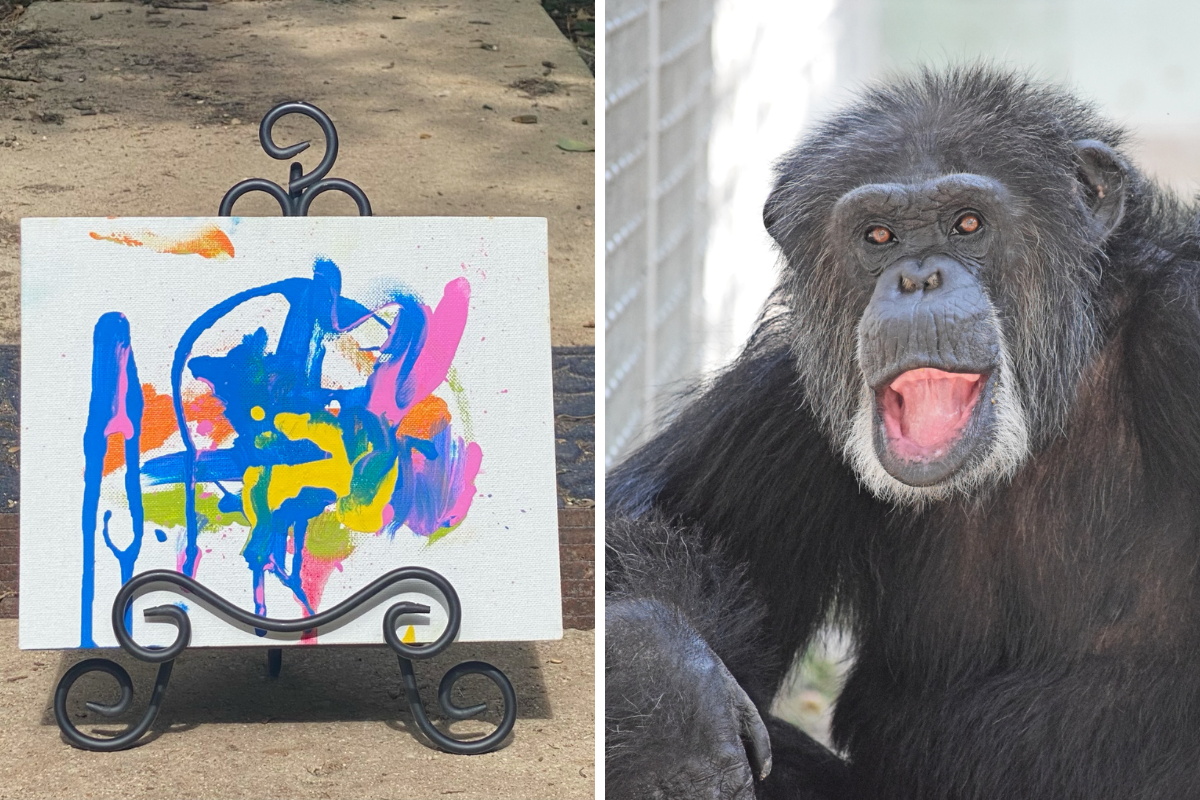Just like us, non-human primates benefit from enrichment activities like listening to music and painting.
Some of the chimps, lemurs, spider monkeys and macaques at Texas-based Primarily Primates sanctuary are such talented “Picassos” that the non-profit is having an online auction of their hand-painted masterpieces to support the primates’ lifelong care. The auction runs Aug. 5-19 on primarilyprimates.org.
“The paintings make great gifts for kids or the family member or friend who has everything,” said Krystal Mathis, executive director of Primarily Primates. “And knowing that your purchase assures each of our animal’s life is filled with a comfortable, secure and stimulating environment is the icing on the cake.”
All the artwork is colorful, vibrant and dynamic—just like the animals who are living a better life after being rescued from biomedical research, the entertainment industry and the exotic pet trade.
Chimpanzee Chobe especially loves to paint. He was born on Nov. 5, 1980, in a U.S. zoo and was taken away from his mother at birth. He arrived at Primarily Primates at just four years of age.
In addition to the work of Chobe and 21 other animals, the auction features a painting donated by Joan Fabian of San Antonio. . She has been featured in the Smithsonian Exhibition “Revealing Culture.”
“I learned about Primarily Primates from my friend Nicole Benson, the sanctuary’s office and development manager,” Fabian said. “I adore animals, so she invited me to visit, and I was motivated by the primates’ paintings!
“My work has to do with making ‘primitive marks’ and getting in touch with a need to express myself and how vibrant life is—it’s about doing and action. I hope my donation helps these fine beings and that they continue to express themselves as I do.”
Besides painting, Primarily Primates puts a lot of effort into auditory, taste, touch and visual enrichment. Sensory enrichment activities include burning coconut and cinnamon incense and aromatic plant materials infused with essential oils. It has a calming effect on the chimpanzees. Daily food enrichment treats also help prevent boredom, particularly if the animals are actively engaged to forage for the offerings. Blankets and other materials are also offered so that the chimps can exercise their nesting instincts.

